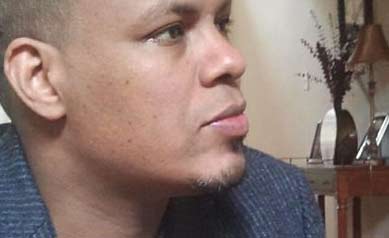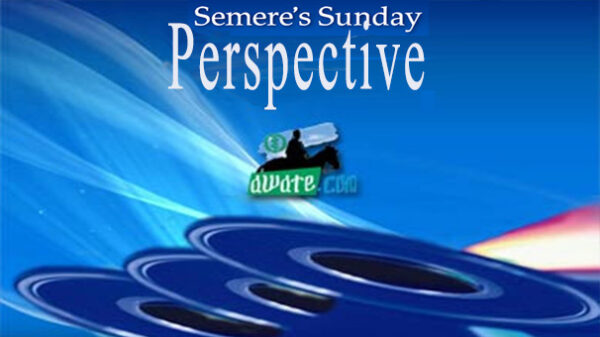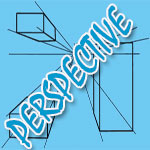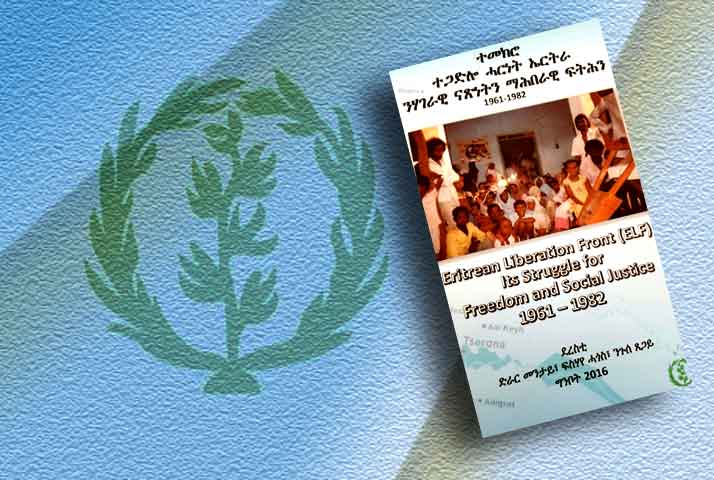Kiros Yohannes: Poet Extraordinaire

My late brother Dawit had asserted that his favorite singer, Bereket Menghisteab, is irreplaceable. Occasionally and upon the insistence of younger siblings who ganged-up on him, he had conceded grudgingly: if there is anyone who might have succeeded in attaining that same level of vocal talent and excellence, then it has to be Dawit Efem.
Call it fate or coincidence, but Dawit Efrem’s first album was the only Tigrinya music my girl-friend, who is now my wife and love of my life, had when I first went to visit her at her college, after we met at the annual Eritrean Soccer Tournament, two decades ago. It was the only music we listened to driving through Kentucky, Tennessee and North Carolina. With his 2002 album, “Men iyu tehatati,” Dawit Efrem bravely risked all possibilities of money-making to trailblaze the use of music in denouncing Eritrea’ home-grown tyranny, and for that we owe him a debt of gratitude.
Compelled by a strong sense of morality and doing the right thing, Dawit Efrem like his Tegadalay father stood for justice and dignity of his people. His sense of goodness is not only limited to national causes; he lives it on daily basis. When my brother was sick, Dawit Efrem and his younger brother used to call and visit him regularly. Before his departure, my brother had told me several times how much he appreciated their care and interest; “T’Uyat iyom” is how he would put it. (Atsmom ykhber deqi Efrem!)
Incidentally, it was Dawit Efrem, in one of our discussions in 2002, who has made me realize the genius of Yemane Barya: the simplicity of language in his lyrics. Truly, “if it ain’t simple, it ain’t right.” Lately, in my travels, I had the opportunity, after a long time, to listen to Barya, and to my greatest delight and surprise, I’ve fallen in love all over again. I’m pretty eclectic in the music I listen to and for the most part, I use the only litmus test I know: if the beat is right, I listen to it all night; and no one rocks like Barya. In the footsteps of my brother, let me assert that Yemane Barya is the king of Tigrinya music; and likewise, grudgingly elevate Abraham Afwerki to the same pedestal—just a bit lower. Yemane Barya’s art was a tribute to his generation, who were forced to be scattered everywhere as refugees and tegadelties (faH faH ilna kem zemeteAbyti: galena nsdet galena ngedli) and wanted them to remember who they were through his music (mezekerta inka iza zema natey) and extend his greetings to them all “Habesha kulukum meneseyat ertra.”
Kiros Yohannes is the poet who speaks for the generation who grew up not experiencing the “T’um gzye: nay seHaq Tseweta” that Yemane Barya so beautifully immortalized in his art. Enslaved at the hands of their older siblings and parents—their liberators, their tormentors—they had to fight for their rights believing that they are like Kiros “ngus nebsey iye” (I own my destiny). Kiros has devoted an entire book to the lamentations of this generation “dguAtat izi woledo”. There is a lot of Yemane Barya in Kiros and that is not a compliment I give easily; it is a well-earned tribute to Kiros. A testimony to his greatness, Barya still speaks to this generation and inspires them to hold on to the dreams his generation fought for because “tmkHteNa wedaqay iyu” and freedom will finally ring in Eritrea. (A copy of Kiros’ book can be obtained from the Red Sea & African Press. Follow the link at the end of this article.)
In his writing, Kiros is free; he is not constrained by the newness or the traditions of poetry; he just speaks truth to power and tells the story of his generation. His charm and astuteness stems from the profundity of his message, the simplicity of his language, his tonal mixture and his genuine desire to communicate with his compatriots. T.S. Elliot once said that immature poets imitate and mature poets steal; but Kiros does neither—he is simply poet extraordinaire. Kiros uses a lot of sarcasm and irony that makes translating his work into English very difficult. I’ve tried to render the accuracy of his message without compromising his readability and style, but I am sure I’ve fallen short. I am responsible for any deficiencies that might have diluted the subtlety and finesse of his poetry.
I can’t take credit for immediately recognizing his talents, but he came highly recommended by trusted and respected friends. Dereie Mohamed Debas, Saleh Gadi Johar and Dr. Bereket Habteselassie were among the first who encouraged me to read his work; and I’m glad I listened to them all. I’ve become a fan of this rare gem of poetic talent; and amazingly the 41 year old family-man with two children is only getting started, and more importantly getting better. I rarely engage in prophecies, but mark my words, you will hear more about Kiros not just in Eritrean but in international circles. In fact, it is this recognition of his talent that prompted Dr. Bereket to reach out and encourage him to write a book.
Dr. Bereket is so humble he will not mention that he had a lot to do with the publication of Kiros’s first book; but those of us in his inner circle know otherwise. Dr. Bereket also wrote the forward to the book. I wish the people who have made a nasty habit of defaming this caring, decent and good elder, scholar and statesman would know the man with an undying interest in literature, revolutionary fervor, pan-Africanism, humanism and simply as a man who likes to guide his Eritrean children to pursue higher education, as some of us have come to know him outside the polluted culture of politics. He is an educator first and foremost who lives his Eritreanism by touching the lives of many of us who had benefited from his extensive experience and expertise. I felt I was listening to my own words when I heard Solomon Assefaw expressing his gratitude to Dr. Bereket for all the guidance and support he had provided the youth in our last workshop in Pretoria.
In this article, I want to introduce the other side of Kiros; the one that goes beyond his familiar activism and his fight for justice, democracy and freedom in Eritrea. He is an artist with messages that transcend time and space. His devotion to poetry is only matched by his desire to be part of the generation that will ensure freedom rings in Eritrea. Here is how he describes the importance of poetry in the poems titled “Writing From Beyond the Tomb” and “Poetry”:
Writing From Beyond the Tomb
By Kiros Yohannes (trans. Semere T Habtemariam)
When I die,
Don’t forget to place,
My pen and papers,
In my coffin
Whether I am,
In hell or heaven
I want to continue writing.
Laid in my tomb
If I stop writing
Then, that is when you will know
I’ve slept that eternal rest.
Poetry
By Kiros Yohannes (trans. Semere T Habtemariam)
How sweet is poetry?
A smile amidst misfortune.
How agreeable is poetry,
Warm tears cascading on a smiling face.
Poetry is also like honey from honeycombs
For those who, with patience and diligence,
Keep and harvest it in its hive.
It is also like a prickly pear
For the those who peel off its prickles and spines
And slowly savors its flavor.
But, alas! Man does not
Take the time to duly masticate,
Perhaps, confusing it with an onion,
Which makes him cry when its skin is peeled off?
The poet uses art to speak of the truth and as Khalil Gibran would have it, the truth needs two people to discover it: one to utter it and the other to understand it. Poetry is essentially a conversation between a speaker and a listener, and I hope I’ve done my part in this article. Kiros has beautifully written about the state of man and what the so-called progress has done to him—the lonely crowd. Life in the so-called state of nature, according to Hobbes, was “solitary, nasty, poor, brutish and short,” and it looks a society established under a social contract will solve all except solitude. Man a social animal that he is will solve all except the very thing that makes him human and the very thing that plays a huge role in his happiness and well-being. In Rousseau-like fashion, Kiros says that man is inherently good but the supra structure he has created has deprived him of his natural nobleness where ultimately he is rendered unrecognizable. Man is like an old statute that has fallen victim to erosion and withering and no longer looks like his old self and accordingly sees “himself in his shadow and realizes he is not a man.” Reminiscent of Ecclesiastic’s softer nihilism, Kiros seems to say that it is all running after the wind. For “What will profit a man if he gains the world and loses his soul?” (Matt. 16:26)
Not a Man
By Kiros Yohannes (trans. Semere T Habtemariam)
Man
In daytime, and even
In prodigal extravagance
Gropes around;
Seeks fellowship
But,
Could not find one.
In shrill voice, he shouted
Only to hear his own voice
Echoing back.
“I must not be here,” he told himself
And…
broke his neck off;
Wept and cried his eyes out.
Then…
In the tears he collected
He saw his own shadow
And realized
That he was not a man.
The message of gaining the world and losing the soul or self is graphically addressed in his poem, “End of Times” where man is confronted with the stark choice of hedonism and righteousness. Will repentance be redemption or lack of it eternal damnation? “Again, when the wicked man turns away from his wickedness…and does that which is lawful and right…he shall surely live, he shall not die” (Ezk 18:27-28) Similarly, the Hadith states that all men from Adam are sinners but the best of them are those who repent. A cliffhanger of what will it be: repentance and salvation, or a-last-minute orgy, binge and wild party on the road to Perdition?
Life is not a giant wheel of emergency we had to roll; there is order in its seemingly randomness and chaos. It is not a fast swinging pendulum from the divine to the temporal, but the balancing act where it stays somewhere in the middle; living in-the-moment-of-now while keeping one eye in the promises of the afterlife. Aristotle has taught that the key to all other virtues is moderation. The wisdom of the “moderation in all” mantra is equally taught in the Bible and the Quran. The moderate is beautiful and the extreme is reprehensible.
End of Times
By Kiros Yohannes (trans. into By Semere Habtemariam)
If you were told that tomorrow is the End of Time;
When the earth and heaven will pass away,
Rolled up like a scroll with grime.
What would you do today?
Before the world quickly fades away?
The angles would play their trumpets, knowing the awaited time has come.
While the wicked would go crazy;
Knowing their day of reckoning has also come.
Would you go to the Temple?
And perform your fasting and prayers?
Or keep on partying till the wee hours of the night,
And satisfy every orgy, binge and wild desire?
But,
While you’re waiting for the End of Times,
Your finale debuted before your own eyes.
Whether it is from the sky or the earth,
Your body shrouded in sheep-skin,
Will be buried beneath the ground
For without any warning,
Death has intruded and caught you by surprise.
Kiros does not underestimate the challenges and difficulties in life, but artfully probes its mystery: “How is it that life is seldom on an even keel; although it stands on solid ground?” Quite often, people tend to muddle through life appreciating its mystery while making history. It is the resignation and the empowerment all wrapped up together; it is knowing that life is 90% what happens to people and 10% how they react to it. It is Machiavelli’s virtu and fortuna. In the spirit of King Solomon, Kiros says there is a time for everything. There is a time and a need to take responsibility for one’s life and a time and a need to accept certain aspects of life that are beyond one’s control.
A message from the Creator
By Kiros Yohannes (trans. into By Semere Habtemariam)
As I was driving on the road;
I saw a dry leaf hopping in visible duress.
At that very instant, my mind gave an order,
To compose a poem addressing her stress.
How is it that,
Life is seldom on an even keel;
Although it stands on solid ground?
Have I added an extra weight to my ballast?
Or the wind has lost its might at last?
But, why I am blaming the wind for this;
The wind only makes whistling whispers,
And never bends its ears.
How is it that I never realized?
Its cause and effect?
The one that sucked my blood and life,
And sentenced me to a life full of worry and misery-rife.
What is mine is mine;
it’s fate.
But who can undo what has already been done?
I plan to live on earth as dust,
Till I formally bid farewell to it.
But, I’m saddened by the leaves that have not fallen yet,
Whose turn will come when they drizzle to the ground?
And slowly dry out.
These were the words of the leave
Now hidden from my sight
Perhaps, her secret was that she carried a message from God.
Assimilate or Integrate?
This is an issue that every refugee and immigrant has grappled with over the course of history. As the sands of cultural identities shift, how much of the old culture must be held on to, and how much of the new must be embraced, and what are the trade-off, if there are any? Kiros decides favorably on the inevitable; the outcome will always be a hybrid of the two, and this is the new identity that needs to be embraced and that will make people comfortable under their own newly founded cultural skin.
Culture is dynamic and alive; and people must either be one of the gods or beasts to be outside it. It is the cumulative multi-way interaction among all segments of a society that produces the prevailing culture and as long as people are actively and freely participating in it, their role and identity will be duly reflected. The only pure culture is a dead culture; if it is a living culture, it is a blend of many that no group can rightfully claim a complete ownership or responsibility for.
It is wrong to balkanize people on the basis of ethnicity, language, religion and culture in the name of identity; for identity like culture is never static. Identity is like a river with many tributaries and its only base of legitimacy is freedom. People must be free to interact and forge a new identity; and that should be the natural course of an evolving culture and identity. Those Eritreans in America, Kiros would say, should take great pride in their new hybrid identity of Eritrean-Americans. They can both enjoy the chicken and the turkey and give Thanks to God who makes all things possible.
Thanksgiving
By Kiros Yohannes (trans. Semere T Habtemariam)
I came to America on Thanksgiving Day
But I had to keep the non-kosher turkey-meat at bay,
Perhaps because I was only used to eating
My country’s home-slaughtered chicken,
Properly blessed by a priest or an elderly lay.
Alas, I didn’t know it was to give thanks
To The One who created me out of clay,
Kept me in good health day after day.
Over time I grew to enjoy turkey
Without forsaking my traditional chicken stew,
Cooked in dark clay-pot in which it is simmered and stays anew.
America is good
One feels free to go out and come back as one pleases
Everyone lives to pursuit his dreams;
Each to his ability,
Hard work and sweat is rewarded.
Let’s appreciate each-other,
Gratitude is an enduring gain.
If we are as fortunate as to also be wise,
We should then wholeheartedly place
Our trust in God; and not in our coin.
Indeed, “Gratitude is an enduring gain!” Thank you Kiros for your poetry, and for being you, and keep on making us proud. You’re revolutionizing Tigrinya poetry.//hawka-Arkkha Semere.
To contact the author: Weriz@yahoo.com or www.facebook.com/Semerehabtemariam
Kiros Yohannes’ book, I own my Destiny: Lamentations of this generation (negus nebsey iye: dguAtat izi woledo) can be purchased: http://www.africaworldpressbooks.com/servlet/Detail?no=477




Awate Forum